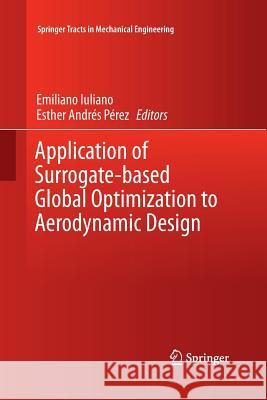Application of Surrogate-Based Global Optimization to Aerodynamic Design » książka
topmenu
Application of Surrogate-Based Global Optimization to Aerodynamic Design
ISBN-13: 9783319372907 / Angielski / Miękka / 2016 / 72 str.
Kategorie:
Kategorie BISAC:
Wydawca:
Springer
Seria wydawnicza:
Język:
Angielski
ISBN-13:
9783319372907
Rok wydania:
2016
Wydanie:
Softcover Repri
Ilość stron:
72
Waga:
0.14 kg
Wymiary:
23.39 x 15.6 x 0.46
Oprawa:
Miękka
Wolumenów:
01
Dodatkowe informacje:
Wydanie ilustrowane











